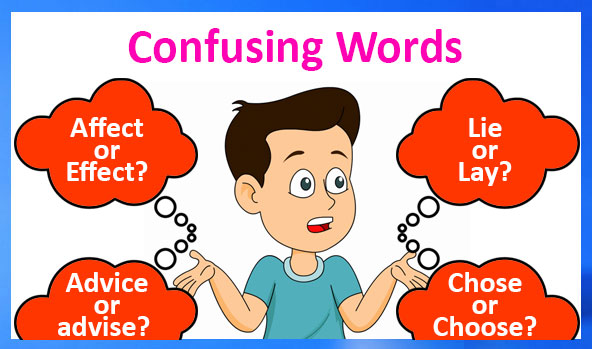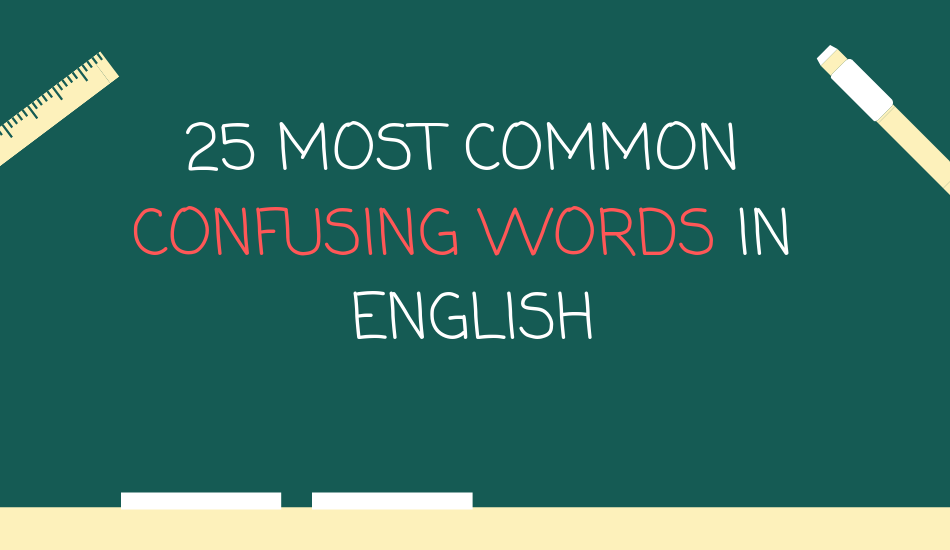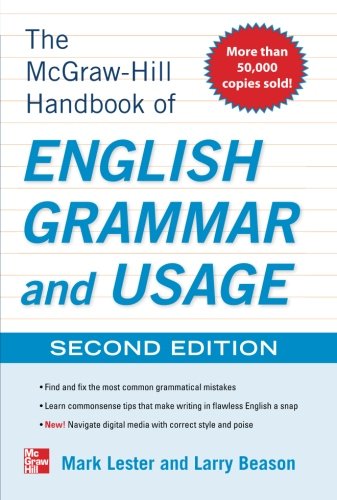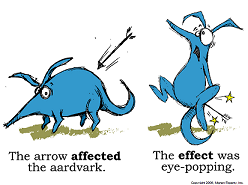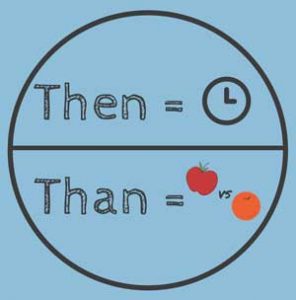We face trouble understanding a few words, as they confuse us with meaning.
Then Vs. Than & Gray vs. Grey has always been giving me trouble until I learned their meanings and sorted out myself where then is suitable and where then is suitable.
So understanding these words is necessary as the English language has many identical words.
Try out Punctuation checker with a sample sentence and see for yourself!
1. Affect / Effect:
Both of them sound the same and have identical spellings. Though they are different in meaning.
Affect, is a verb. It means to have an impact on something.
The effect is a noun. It means the result of being affected by something.
Correct Examples:
- Let’s wait for the meds to have an effect.
- These refugees were affected by the flooding.
Incorrect Examples:
- Let’s wait for the meds to have an affect.
- These refugees were affected by the flooding.
2. A lot / A lot:
Alot is never a word, it never has been. A lot is the word that you should be practicing writing.
Correct Examples:
- I have a lot of things to spend on.
- You have a lot of thoughts going on in your mind.
Incorrect Examples:
- I have alot of things to spend on.
- You have alot of thoughts going on in your mind.
3. Between / Among:
Between, refers to a thing that is two or more.
Among, is used for things that are considered as part of a group altogether.
Correct Example:
- I have to choose between a blue Lamborghini or a red Ferrari.
- Choose among your watches, to wear for the party.
- I love walking among the people.
- I liked to walk between the two streets.
Incorrect Examples:
- I have to choose among a blue Lamborghini or a red Ferrari.
- Choose between your watches, to wear for the party.
- I love walking between the people.
- I liked to walk among the two streets.
4. Compliment / Complement:
Both the words sound the same and have spelling closely identical. But they have different meanings.
Compliment, is referring to praise or an expression said or written in praise.
Complement, means something that will complete a particular thing.
Correct Example:
- He complimented her for her work of art.
- Dessert will complement the meal.
Incorrect Example:
- He complemented her for her work of art.
- Dessert will compliment the meal.
5. Each / Every:
Use them both together, to demonstrate empathy. Only in that case, not the otherwise.
Correct Example:
- Each individual is especial in their own way.
- Everybody is especial in their own way.
Incorrect Example:
- Each and every individual is especial in their own way.
6. Especially / Specially:
Both these words are identical to one another.
Special, is an adjective (common) and especially is an adverb. It means something designed for a specific purpose.
Especial, is also an adjective (non-common). Especially refers to something that is exceptional and particular.
Correct Examples:
- This function is specially arranged for the Bride.
- You have done especially well in the cricket tournament.
Incorrect Examples:
- This function is especially arranged for the Bride.
- You have done specially well in the cricket tournament.
7. Except / Accept:
Both sound identical but have meanings different.
Except, means to exclude something or exclusion of something.
Accept, means to receive anything or something.
The innocent mistake people commit with the two words is putting except, where accept is deemed to be put.
Correct Examples:
- I have to accept this as my fate.
- We all are going to picnic except Rizwan.
- We accepted you in our home.
- Except you, all are invited
Incorrect Examples:
- I have to except this as my fate.
- We all are going to picnic accept Rizwan.
- We excepted you in our home.
- Accept you, all are invited.
8. Faith / Fate:
Another confusion that often arises is between faith and fate.
Faith, means the belief in something.
Fate is destiny.
Correct Examples:
- I have my faith in you.
- He thinks all bad that happens to him is in his fate.
- This is my fate, to bear the pain.
- I have put my faith in the God.
Incorrect Examples:
- I have my fate in you.
- He thinks all bad that happens to him is in his faith.
- This is my faith, to bear the pain.
- I have put my fate in the God.
9. Farther / Further:
Farther & further are another case with identically spelled words but pronounced differently.
Farther is used for referring to something at a physical distance.
Further, means to refer to something that is at a nonphysical distance.
Correct Examples:
- Karachi is farther away than Hyderabad.
- Our team has fallen further away from the goals.
Incorrect Examples:
- Karachi is further away than Hyderabad.
- Our team has fallen farther away from the goals.
10. Fewer / Less:
Fewer is to regard with something that you can count.
Less is to refer to something that is uncountable.
Correct Example:
- We have two fewer pencils, than yesterday.
- You love me less than you did before.
Incorrect Examples:
- We have two less pencils, than yesterday.
- You love me fewer than you did before.
11. Into / In to:
This is a mistake committed by many, and more than often.
Into, is used to suggest movement.
In to, whereas the in and to are two individual words.
Correct Examples:
- He walked into the office.
- Call in to a meeting.
Incorrect Examples:
- He walked in to the office.
- Call into a meeting.
12. Its / It’s:
Its is signifying the possession. Something belonging to someone.
It’s, is short for it is.
Correct Examples:
- It’s raining outside.
- Phone looks great in its new cover.
Incorrect Examples:
- Its raining outside.
- Phone looks great in it’s new cover.
13. Lose / Loose:
People often commit the mistake with the lose and loose. As they fail to understand the difference.
Lose, is as in losing the game. Loose, is the opposite of tight.
Correct Examples:
- I lose three games against you.
- These pants are loose.
Incorrect Examples:
- I loose three games against you.
- These pants are lose.
14. Me / I:
Sometimes we think we know the difference between the two words until we have it upon us to write either one of them. That sounds confusing, same was my case concerning where to put me and I.
Correct Examples:
- When you are done, send the spreadsheet to boss and me.
- Danish and I joined the gym.
- Mom took Danish and me to the shop
Incorrect Examples:
- When you are done, send the spreadsheet to boss and I.
- Danish and me joined the gym.
- Mom took Danish and I to the shop.
15. One another / Each other:
Both of the above-mentioned are used for the same purpose in the language. Though we prefer one another for the use in general statements.
Also, they both are good enough to be used in possessive forms.
Correct Examples:
- We don’t talk to each other anymore.
- We don’t talk to one another anymore.
- We spent a night listening one another’s stories.
- We spent a night listening each other’s stories.
16. On / In:
We have often seen people commit the mistake of putting “in”, where “on” is supposed to be used in a sentence. That is all due to the confusion and not having awareness of what they mean and where they are better placed in sentences.
On, refers to something that is “on top of”.
In, refers to “inside”.
Correct Examples:
- He is riding on a bike.
- He rides in a car.
- He sat in a tree.
Incorrect Examples:
- He is riding in a bike.
- He rides on a car.
- He sat on a tree.
17. Price / Prize:
Price and Prize are very identical to one another, though they have different meanings.
Price is to pay something for buying.
The prize is the reward of winning a competition.
Correct Examples:
- What is the price of this laptop?
- He won this trophy as a prize for excellence in education.
Incorrect Examples:
- What is the prize of this laptop?
- He won this trophy as a price for excellence in education.
18. Say / Tell:
Say, is used without an indirect object.
Tell, is used with an indirect object (to).
Correct Examples:
- Tell me the problem I will solve it for you.
- Mother said that she was feeling fine.
- Harry told me, he wants to become a magician.
Incorrect Examples:
- Tell to me the problem I will solve it for you.
- Mother told that she was feeling fine.
- Harry told me, he wants to become a magician.
19. Shall / Will:
Shall is a word becoming less common among the masses. Only a few distinct and strictly observe the differences of both. According to traditions, Shall is supposed to be used with the first-person pronouns. Whereas, a will is used with the second and third-person pronouns.
Though they both are used interchangeably in American & British English.
Correct Examples:
- I shall bring you the plants.
- We shall go to the forest at night.
- They will be there in time.
- You will go to the party.
- I will bring you the plants.
- We will go to the forest at night.
20. There / Their
One of the most confusing things, I have encountered is the difference between the usage of there and their.
/There, is used in a sentence to refer to the place not here.
Their is used for the indication of possession.
Correct Examples:
- You will find it over there.
- We should talk to their representative.
Incorrect Example:
- You will find it over their.
- We should talk to there representative.
21. Then / Than:
‘The perplexing thing is the sound of the both of them. They sound the same and the spelling is very close to being identical. So it is found to be a very common and innocent mistake among the speakers and writers of the English language.
Then, refers to something that will follow something else. To be specific or clear, the next step or step by step instructions.
Than,is used in the English sentences to show comparisons.
Correct Examples:
- We are better at Cricket than, the opponents.
- We will go to sea view first, then the market.
Incorrect Examples:
- We are better at Cricket then, the opponents.
- We will go to sea view first, than the market.
22. Who & That:
To keep it straightforward, you should know the difference between the “who” and the “that”.
Who is used for the human? That is used for the non-human.
Calling a “Who” a “that” is dehumanizing that human.
Correct Examples:
- I want to have friends who I can trust.
- Friends who love me.
- The man who I’ve become.
Incorrect Examples:
- I want to have friends that I can trust.
- Friends that love me.
- The man that I’ve become.
23. Who / Whom:
Who and whom, both are the pronouns.
Who is a subject? Whom, is an object.
Correct Examples:
- Who is your favorite singer?
- Whom do you like among the singers?
Incorrect Examples:
- Whom is your favorite singer?
- Who do you like among the singers?
Note: when your answer is either He or She, then use a who. Whereas when it is either a Him or Her, then you use the whom.
24. Who’s / Whose:
Since both sound, the same, distinguishing their use will be necessary as beginners will face certain problems with the aforementioned two words.”
Who’s, is a contraction for who is or who has.
Whose, is a word that shows possession.
Correct Examples:
- Whose pencil is this?
- Who’s not coming today?
- Whose friend are you?
- Who’s wrong, who’s right I don’t know.
Incorrect Examples:
- Who’s pencil is this?
- Whose not coming today?
- Who’s friend are you?
- Whose wrong, whose right I don’t know.
25. Your / You’re
The key thing here is to distinguish between the two.
Your is signifying the possession. Whereas You’re, is the short for You are.
Correct Examples:
- You’re looking good in this dress.
- Can I have your glass to refill?
Incorrect Examples:
- Your looking good in this dress.
- Can I have you’re glass to refill?
Images source in this article.

By
Last updated:
August 19, 2022
The English Learner’s Guide to the Most Confusing Words in the Language
Slam poet and former teacher Taylor Mali says that he makes students spell definitely and beautiful over and over again, until they never misspell either one of those words again.
If you are an English learner, you have probably been confused by those words or difficult words like them.
The problem that most English learners face is the great number of confusing words in the language.
There are words that look alike and/or sound alike but have completely different meanings. There are words that are difficult to pronounce and others that you can never remember how to spell.
Fear not!
We have created a list of the most confusing words in English, so you can learn them and prevent these words from stopping you in your path to English fluency.
Download:
This blog post is available as a convenient and portable PDF that you
can take anywhere.
Click here to get a copy. (Download)
Why Are These Confusing Words Important for English Learners?
Before you can have any chance to improve your fluency, you need to work on English accuracy, or the ability to produce grammatically correct sentences.
Confusing words can make it hard to speak or write accurately—whether you are using them the wrong way or confusing them with other words. Learn a few essential confusing words and you will take a significant step toward fluency.
You will also rely less on tools such as spellcheck, which are often helpful, but can sometimes make things worse for English learners. There are some mistakes your word processor’s spellcheck feature simply will not catch. This is especially true with homophones, or words that sound the same (as we will discuss below).
For example, a spellcheck will not know that you wanted to write “nice to meet you” instead of “nice to meat you.”
Overall, mastering confusing English words will make you a more confident English speaker. If you learn them, these words will not make you freeze up when you hear them or need to use one. The more confident you become, the more fluent you will sound—and the more motivation you will have to keep practicing English.
In the video below, you’ll learn all about the difference between look, see and watch in English. These verbs are often the source of lots of confusion and can be difficult for English learners to use.
What to Do When You Encounter Confusing English Words
When you are reading, watching a movie, surfing the web or doing anything else in English, a good dictionary can help you overcome confusing words. There is no shame in taking a few seconds to look up a word—and you are more likely to remember it the next time you encounter it. If you are always on the move, try a handy dictionary app.
It can also be helpful to have a reference book on grammar and vocabulary handy. “The McGraw-Hill Handbook of English Grammar and Usage” is a classic, but you might also like “The Little, Brown Handbook” and “A Practical English Grammar.”
Your dictionary will show you how to spell, define and use a word, but you will need some extra help for pronunciation.
Pronunciation Book, for example, is a YouTube channel that offers instructional videos demonstrating the correct American pronunciation of English words. I used this channel to end a long debate on how to pronounce cthulhu (the name of a fictional character from an H. P. Lovecraft story), one of the most famously difficult words to pronounce in literature.
Visual Thesaurus is another cool tool that will help you identify and quickly memorize new or confusing English words. While a traditional thesaurus just shows you a list of related terms for any word you look up, Visual Thesaurus provides an interactive word map.
You can click through the map to see which words are similar, and which word means exactly what you want to say. You will get a full understanding of confusing words and will quickly learn how to spell, use and even say them! Visual Thesaurus comes with its own pronunciation demonstrations built right in.
They say “misery loves company” and that applies to these confusing words as well. We can divide these words into categories depending on their spelling, their pronunciation or their difficulty so you can easily identify the problems with them and know how to solve them.
Homophones
Words like meet and meat are called homophones: words that sound the same, but have different meanings. Since they sound the same, it is easy to get confused with these words and end up in very funny situations.
Homophones are pronounced the same way, but in most cases that is the only similarity between these words. Now we will review some homophone examples so you can ketchup (or should we say: catch up!).
Aloud vs. Allowed
Aloud is an adverb that means “orally; not silently.”
Allowed is the past tense of the verb allow, which means “to give permission for something.”
The student was allowed by the teacher to read his poem aloud to the class.
Right vs. Write
Right has a few meanings you are likely to encounter.
One definition of right is “correct.” If someone asks you a question, you will try to give the right answer. Right can also refer to a direction or location—it is the opposite of left. If you are facing north and you turn east, you are facing to the right.
By contrast, write means “to inscribe or compose.”
Take a pencil from the cabinet on your right. Write the essay again, and this time use the right words!
Die vs. Dye
To die means “to cease to live,” while to dye is to change the color of something using paint or chemicals.
If you dye my hair the wrong color, I will just die!
Bare vs. Bear
When something is bare, it is uncovered, unclothed or exposed.
To bear means to carry or support something. Bear as a noun refers to a wild animal (more on this later).
He could hardly bear the pain of walking with bare feet on the hot sand.
You’re vs. Your
You’re is a contraction of the words “you” and “are” that we can use in a sentence like, You’re a good friend. (You are a good friend).
By contrast, your is the possessive form of “you,” and we can use it in a sentence like, Your book is on the table. (The book that belongs to you is on the table.)
Be careful with these words—even native speakers get them mixed up sometimes!
Homographs
In addition to homophones, you have to be careful with homographs—words with the same spelling, but different meanings—like these:
Bear
Just like the word right mentioned earlier, bear can be a homograph as well as a homophone!
While to bear means to carry or support, a bear is an animal you would find in the woods.
Winnie the Pooh is a small bear who cannot bear a lot of weight.
Subject
If you are a subject, you are under the authority of someone like a king.
More commonly, this word means “topic” or “the theme of a conversation/article/study/etc.” You can also study a subject, like math, science or English.
Benjamin Franklin is the subject of this biography.
The king will provide for his loyal subjects.
Object
As a noun, an object is something that can be seen or touched. It usually refers to an inanimate (not alive) thing.
As a verb, to object is to express disapproval or opposition.
A frisbee is a small, round object the size of a dinner plate.
I have to object to the immoral business being carried out.
Bow
As a noun, a bow is a knot to join the ends of a ribbon or string.
As a verb, to bow is to bend the body or to incline the head, as to show respect or greet someone.
The girl wore a pretty bright bow in her hair.
The man bowed his head in prayer.
This is one of the few homographs on this list that has a pronunciation difference. The noun bow rhymes with the exclamation “oh” while the verb bow rhymes with “how.”
Produce
To produce, as a verb, means “to create or make something.”
As a noun, produce refers to fresh fruit or vegetables.
The new automobile factory is not ready to produce cars yet.
The farmer sells his produce from the back of his truck.
Date
A date as a noun typically refers to a specific day on the calendar.
A date can also refer to a sweet fruit commonly found in the Middle East or Northern Africa.
As a verb, to date means “to go out with someone romantically.”
July 4 is an important date in American history.
I ate so many dates I made myself sick!
He dated a lot of people while he was in high school.
Tear
To tear, as a verb, means “to rip or pull apart something.” Tear as a noun means a “drop of water from the eye.”
The verb tear rhymes with bear, while the noun tear rhymes with here.
This fabric is bad! It tears easily.
She was crying—I found her in tears.
Lie
To lie can mean either to be in a horizontal position, or to tell something that is not true.
The book lies on the table.
He lied about his age. He said he is 30, but he is older than that.
Content
If you are content, it means you are happy or satisfied with something.
He was content with the movie and settled back to enjoy watching.
Content as a noun usually refers to some material or information that can be found inside something else. It is often used in the plural form (contents).
Oranges have a high content of vitamin C.
The poem had a lot of words, but very little interesting content.
What are the contents of this envelope?
Words with Difficult Spelling
There are words like throughout that have a spelling so difficult that you constantly need to look it up. Is it g before h or the other way around? Make sure to double check every time.
Awkward
With that combination of w-k-w, it is easy to misspell this word and put yourself into an awkward (uneasy/not elegant) situation.
Weird
Weird is, well… weird, because it breaks the “I before e except after c” rule for English spelling.
Try repeating this sentence for remembering how to spell it: “We are weird. We is the beginning of weird.”
Rhythm
Only one single vowel and a pair of wild hs? No wonder this word is so difficult to spell. Try to remember the similar word rhyme, which is slightly easier.
Dessert vs. Desert
It is easy to confuse dessert and desert. Try to remember that Sahara, with only one s, is a desert and not a dessert.
Especially vs. Specially
Especially is an especially common English word to misspell.
Some English learners accidentally spell it with an x (expecially or exspecially), perhaps because that is how many people pronounce it. Try this trick remembering how to spell it: especially includes the word special, which makes it easy to remember the correct word, especially.
Then throw specially into the mix, and things get even more complicated.
Especially means “particularly” or “above all.”
She loves flowers, especially roses.
On the other hand, we use specially to talk about the specific purpose of something:
This bathroom was specially designed to make it easy for a disabled person to use.
The more vocabulary you learn, the easier it will be to communicate. The more you communicate, the easier it will be to have confidence while speaking English. Just remember that learning English should be fun! If you do get one of these confusing words wrong, just laugh it off and enjoy yourself; you learn more when you are enjoying yourself.
Which of the most confusing words confuse you? Which ones do not? Do you have any good tricks for remembering how to use them correctly?
Download:
This blog post is available as a convenient and portable PDF that you
can take anywhere.
Click here to get a copy. (Download)
English is a language with a huge ocean of vocabulary. So the understanding and knowledge of each and every word of English become a little bit difficult. Here also comes some of the words which create a lot of confusion in the minds of readers. In the IELTS examination, vocabulary plays an essential role, and with one wrong word, the whole meaning of the sentence changes.
This article will particularly focus on some of the confusing words in the English language which need to be understood to score higher in the IELTS examination.
1. Accept or Except
This is the commonly mistaken word in English and even its pronunciation is different. ▶️ Accept— means to agree to something or to take something.
Example- I have accepted your proposal.
▶️ Except— means excluding something or beside this.
Example- The country is progressing in many areas except the health sector.
2. Career or Carrier
Again a widely usual and common mistake and still not clear in many students’ minds.
▶️ Career- means one’s occupation or profession or work which someone does in life.
Example- Career building is important in everyone’s life.
▶️ Carrier- an object or a person which is used to carry someone or something.
Example- There are many people who act as carriers at pilgrimage sites to move people from lower ground to upper ground.
3. Advice or Advise
Only with a difference of ‘c’ or ‘s’ this word makes a lot of confusion in mind.
▶️ Advice— it is a noun. It is given.
Example— Students should follow the advice of their teachers.
▶️ Advise— it is a verb. The way with which advice is given.
Example— Teachers are advising their students on their careers.
4. Affect or Effect
A difference in the first letter is a common mistake committed by students which can, too, change the meaning of the sentence.
▶️ Affect— It is a verb. It means to change or have an impact on something or someone.
Example— Smoking affects the lungs adversely.
▶️ Effect— it is a noun. It means the result of a change.
Example— Smoking leaves harmful effects on the lungs.
5. There or Their
Spellings are commonly mistaken as students do not have an idea which will be correct.
▶️ There— it is a place like here or there.
Example— There are many books on my bookshelf.
▶️ Their— it is a pronoun. Like he, she, it, they, their, etc.
Example— They are least interested in history projects. Their interest is in English.
6. Lose or Loose
Same pronunciation but different meanings and spellings.
▶️ Lose— opposite of win. To lose possession of something or to fail.
Example- He loses this game every time.
▶️ Loose— opposite of tight. Something relaxing or to release.
Example— Nowadays, a trend of wearing loose pajamas is in fashion.
7. Principle or Principal
▶️ Principle— it means a rule or an idea upon which to act.
Example- Cheating in exams is not in her principles.
▶️ Principal— means head of an educational institute
Example- My school’s principal is very strict and commanding
8. Personal or Personnel
▶️ Personal- means private possession which belongs only to oneself.
Example- You are not allowed on my personal property.
▶️ Personnel- means staff or employees of a company or any organization.
Example-A company should be very selective in choosing its personnel.
9. Dessert or Desert
A little bit of difference in pronunciation but a huge difference in meaning, is also one of the common mistakes a student commits.
▶️ Desert- a dry place or nature’s creation just like rivers or oceans.
Example— the Sahara desert is the largest desert in the world.
▶️ Dessert- a sweet dish was usually taken after dinner or any meal.
Example— I like to eat ice cream as a dessert for dinner.
10. Among or Between
▶️ Among — a preposition used to compare where to differentiate someone or something in many people
Example — John is the tallest boy among all boys in his class.
▶️ Between — a preposition used to compare someone to two people.
Example— A lot of fights have occurred between John and Ken these days.
11. Emigrate or Immigrate
A most common mistake and usually a question in the minds of students about the difference between emigrate and immigrate.
▶️ Emigrate-it means to move out of place or a country.
Example— Mr. Brown has emigrated from India last week
▶️ Immigrate- it means to move into a place or a country
Example — Mr. Brown immigrated to Canada last week.
12. Then or Than
▶️ Then— It is an adverb of time. It means ‘after that’
Example — Firstly, the potatoes are washed. Then, these are peeled.
▶️ Than— it is a comparative degree and used to compare two objects or two persons.
Example — John is taller than Justin.
13. Stationary or Stationery
▶️ Stationary — means an object or any person is not moving or stick to its place.
Example — The sun remains stationary but the planets revolve around the sun.
▶️ Stationery— it means the writing material usually books, pens, pencils, letter pads, etc.
Example — Students should carry their necessary stationery in their exams.
14. To or too
▶️ To- to is a preposition or can be used to Express relation, or with a verb as a gerund.
Example — Please pass this pen to Henry. John is related to Mr. Jack.
▶️ Too- too means also, to put focus or emphasize something Sun is too hot.
Example— Jack and Jill are to going with the class fellows.
15. Complement or Compliment
▶️ Complement- it means to complete something or someone
Example -Burger always complements with fries.
▶️ Compliment- to say something nice to someone or to praise somebody.
Example — Mr. Brown has the habit to compliment each and every tasty dish.
16. Plain or plane
▶️ Plain- a large area or some adjective that means not special or showy or casual.
Example — Northern India has more plain land.
▶️ Plane- a flat surface or an airplane.
Example — He traveled from Punjab to Delhi by plane.
17. Pray or Prey
▶️ Pray- means to worship
Example — God Always prays for good health and education.
▶️ Prey- to hunt or to kill someone for food or a victim
Example — The lion saw its prey through long grass.
Final Words
The English language has some commonly confused words but with the right approach, it can be learned in a better way. Do not fall prey to these common mistakes and practice hard for these words as one wrong word can alter the meanings and will be responsible for the deduction of scores in IELTS.
Asked by: Elisabeth Walker
Score: 4.8/5
(51 votes)
Accept or except? The top 10 confusing English words you need to know
- ‘Dessert’ or ‘desert’ …
- ‘Accept’ or ‘except’ …
- ‘There’ or ‘their’ …
- ‘Principle’ or ‘principal’ …
- ‘Advice’ or ‘advise’ …
- ‘Borrow’ or ‘lend’ …
- ‘Despite’ or ‘although’ …
- ‘Affect’ or ‘effect’
What is the most confusing word in the English language?
As a follow up to our article on confusing words, here are ten of the most difficult words in English.
- Literally. If you know a language purist, watch out. …
- Ironic. …
- Irregardless (instead of regardless) …
- Whom. …
- Colonel. …
- Nonplussed. …
- Disinterested. …
- Enormity.
What are the most confused words?
Commonly Confused Words
- Lie vs. Lay. …
- Lose vs. Loose. …
- Than vs. Then. …
- That vs. Which. …
- Their vs. There vs. They’re. …
- To vs. Too vs. Two. …
- Who vs. Whom. Who is a pronoun used as the subject of a sentence. …
- Your vs. You’re. Your is a pronoun that is second person possessive.
What are some confusing words in English?
Here’s a list of some of the most commonly confused words in the English language:
- imply/infer. Imply and infer both have to do with communicating and understanding information. …
- eminent/imminent. …
- ensure/assure/insure. …
- advice/advise. …
- altogether/all together. …
- bemused/amused. …
- complementary/complimentary. …
- flare/flair.
What is the craziest word?
34 of the Zaniest, Craziest Words in the Dictionary (Anything Missing? Add It In the Comments!)
- Bumfuzzle. This is a simple term that refers to being confused, perplexed, or flustered or to cause confusion. …
- Cattywampus. …
- Gardyloo. …
- Taradiddle. …
- Snickersnee. …
- Widdershins. …
- Collywobbles. …
- Gubbins.
44 related questions found
Is there a word stupidest?
Stupider and stupidest are real words in good standing. While there are many (contradictory) rules on comparative and superlative adjectives, there is no rule against stupider and stupidest, and the words have a long history of usage.
What is the stupidest word in the world?
Regardless they are all pretty dumb words to constitute a permanent place in the English vocabulary.
- Derp (also herp derp): …
- Duck Face. …
- FOMO (Fear of Missing Out) …
- Selfie. …
- Sexting. …
- Twerk. …
- Unfriend. …
- Obvs, Totes and OMG. “Obviously.” “Totally.” “Oh My God.”
What are the 5 longest words?
Here’s how Merriam-Webster defines the ten longest words in the English language.
- Floccinaucinihilipilification (29 letters) …
- Antidisestablishmentarianism (28 letters) …
- Honorificabilitudinitatibus (27 letters) …
- Thyroparathyroidectomized (25 letters) …
- Dichlorodifluoromethane (23 letters) …
- Incomprehensibilities (21 letters)
What are the 10 most misused words?
10 Most Commonly Misused Words
- Accept versus Except: Accept is a verb meaning to receive while except is primarily a preposition meaning to exclude. …
- Capital versus Capitol: …
- Elicit versus Illicit: …
- Emigrate versus Immigrate:
- Climatic versus Climactic: …
- Principal versus Principle: …
- Your versus You’re: …
- Affect versus Effect:
What is the most longest word?
Major dictionaries
The longest word in any of the major English language dictionaries is pneumonoultramicroscopicsilicovolcanoconiosis, a word that refers to a lung disease contracted from the inhalation of very fine silica particles, specifically from a volcano; medically, it is the same as silicosis.
What is a big confusing word?
Do you know what pneumonoultramicroscopicsilicovolcanoconiosis means? … According to the Oxford English Dictionary, pneumonoultramicroscopicsilicovolcanoconiosis is «an invented long word said to mean a lung disease caused by inhaling very fine ash and sand dust».
What is the hardest word to say?
The Most Difficult English Word To Pronounce
- Colonel.
- Penguin.
- Sixth.
- Isthmus.
- Anemone.
- Squirrel.
- Choir.
- Worcestershire.
What are hard words to spell?
Top 10 Hardest Words to Spell
- Misspell.
- Pharaoh.
- Weird.
- Intelligence.
- Pronunciation.
- Handkerchief.
- logorrhea.
- Chiaroscurist.
What word takes 3 hours to say?
The chemical name of titin was first kept in the English dictionary, but it was later removed from the dictionary when the name caused trouble. It is now known only as Titin. Titin protein was discovered in 1954 by Reiji Natori.
What are the 20 most misspelled words?
20 most commonly misspelt words in English
- Separate.
- Definitely.
- Manoeuvre.
- Embarrass.
- Occurrence.
- Consensus.
- Unnecessary.
- Acceptable.
What are some tricky words?
We’ve rounded up ten of the trickiest words in English and provided tips that will help you stop misspelling them.
- Necessary.
- Stationary vs. Stationery. …
- Separate. When we pronounce this word, it sounds like “seperate”. …
- Affect vs. Effect. …
- Embarrassed. …
- Compliment vs. …
- Accommodation.
- Rhythm.
What are some overused words?
15 Most Overused Words (and Their Alternatives)
- Amazing. You can hear it in your head by just reading the word on a page. …
- Interesting. This word is used so often that sometimes it gets difficult to understand what a person means when they say it. …
- Literally. …
- Nice. …
- Hard. …
- Change. …
- Important. …
- Actually.
What words can be misunderstood?
10 Commonly Misunderstood Words in English
- Enormity. Enormous in size (enormousness) vs monstrous evil, excessive, wicked, outrageousness.
- Nonplussed. Unaffected, unimpressed vs bewildered, extremely puzzled at a loss.
- Bemused. …
- Redundant. …
- Plethora. …
- Unique. …
- Fulsome. …
- Noisome.
What are the 15 commonly misused words in English?
Here are 15 commonly misused words, and the right way to use them.
- Irregardless. I am not sure how «irregardless» crept into our vocabulary, but the correct word is «regardless.»
- Literally. …
- Excetera. …
- Supposably. …
- Preemptory. …
- Realator. …
- Expresso. …
- Australia.
What is the shortest word?
Eunoia, at six letters long, is the shortest word in the English language that contains all five main vowels. Seven letter words with this property include adoulie, douleia, eucosia, eulogia, eunomia, eutopia, miaoued, moineau, sequoia, and suoidea. (The scientific name iouea is a genus of Cretaceous fossil sponges.)
Is there a word with 1000 letters?
pneumonoultramicroscopicsilicovolcanoconiosis
It’s a technical word referring to the lung disease more commonly known as silicosis.
Is it fun to say yes or no?
And they also agree that…the answer to “is funner a word?” is yes. If you want to consider “fun,” as an adjective, a word, then “funner” is indeed a word, as is “funnest,” per normal rules of adjective formation.
Is hurted a word?
(archaic or nonstandard) Simple past tense and past participle of hurt.
What is the stupidest word in English?
The 10 Worst Words in the English Language
- Colonel. “Colonel” is just an unwieldy disaster of phonetics and it spits in the face of the English language. …
- Rural. There is no graceful way to say rural. …
- Fester. …
- Puce. …
- Squelch. …
- February. …
- Pustule. …
- Bosom.
What are the most confusing words in English? what are commonly confused words with meaning? What are the most confusing words in English? list of confusing words in English pdf
In general, the English language includes many confusing words that sound alike but are spelled differently; and because vocabulary is basic and an essential part of writing, speaking, and reading; it is quite important to recognize the most commonly confused and misused words in English. it can be very tricky for language learners to depict the difference between these similar words; however, it is primordial to be familiar with the most confusing words in English.
This lengthy list of the top most confusing words pairs, organized in alphabetical order with simple definitions, will hopefully help you begin to recognize the specific differences between different pairs of words.
Commonly Misspelled Words
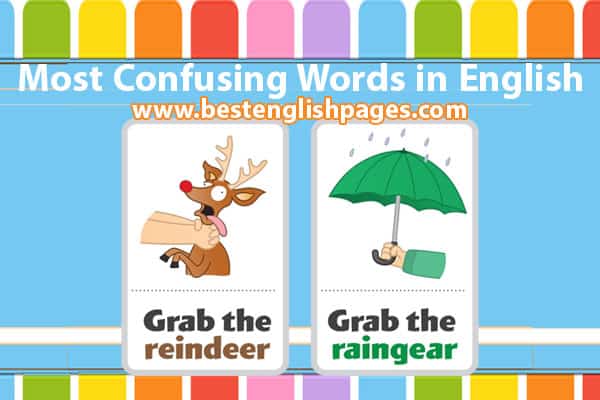
What Are the Most Confusing Words in English ? List of Confusing Words in English Pdf
| Accept | Agree to receive or take what is offered |
| Except | Not included |
| Access | Entryway, way in. |
| Excess | Portion that is more than required |
| Adapt | Change or alter according to conditions |
| Adopt | Legally take another’s child as your own. |
| Advice | Noun. Guidance offered to an inexperienced person. |
| Advise | Verb. Action of giving advice. |
| Affect | Make a difference to something |
| Effect | Result of something |
| Aid | Assistance or help. |
| Aide | Person who assists |
| A Lot | A large number |
| Allot | Assign to, give out |
| Already | Before the time expected e.g. “You are done already? That was fast” |
| All Ready | Fully prepared |
| Allusion | Hint at something |
| Illusion | “seeing” something that is not there |
| Amoral | Having no morals |
| Immoral | Doing something that society does not consider to be moral |
| Ante | Before |
| Anti | Against |
| Assent | Approval |
| Ascent | Going up, commonly used in mountain climbing |
| Aural | To do with the ear or hearing |
| Oral | To do with speaking or the mouth |
| Biannual | Twice a year |
| Biennial | Every second year |
| Board | Flat piece of wood used in building |
| Bored | Made a hole in something with a drill |
| Brake | To stop a car using mechanical means |
| Break | Do something to stop a thing from operating or being whole. e.g. “Break a cup” |
| Breach | Make a gap or hole in something. e.g. “the dam was breached and the town was flooded” |
| Breech | 1. Part of a gun or rifle 2. type of birth where feet come first |
| Bridal | To do with a bride or woman getting married |
| Bridle | Leather harness on a horse’s head |
| Canvas | Type of material |
| Canvass | To go to the people looking for support in an election |
| Capital | 1. Main city in the country 2. money owned by a business |
| Capitol | The building in Washington D.C. in which the American government meet |
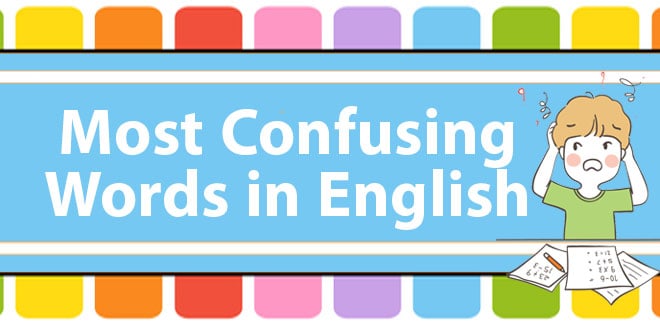
| Carat | The unit of weight of gems and precious stones |
| Caret | A line on a page showing where a missing word should go. |
| Carrot | A vegetable |
| Chord | A combination of musical notes |
| Cord | A length of string or rope |
| Complement | Something that looks good with something else e.g. “that hat complements your coat” |
| Compliment | An expression of praise |
| Confidant | Someone you tell your secrets to |
| Confident | Have faith in something. e.g. “I’m confident I’ll ass the exam” |
| Council | A group who take decisions on the running of something, usually a town or village |
| Counsel | Advice, especially by a professional. |
| Coarse | Rough |
| Course | Direction as in the aeroplane is on course |
| Curb | To stop or restrain an activity |
| Kerb | The joint between the road and the footpath |
| Currant | Dried grapes used in cooking |
| Current | Up to date |
| Demur | Raise doubts or objections |
| Demure | Modest, shy |
| Descent | Going downwards, descent of the hill |
| Decent | Up to standard |
| Dissent | Raise objections |
| Desert | Dry land where very little grows |
| Dessert | Part of a meal |
| Device | Object used for a particular purpose |
| Devise | Think of a plan |
| Die | Expire, lose life |
| Dye | Change colour |
| Draft | A written report that needs more work |
| Draught | Blast of cold wind in a building |
| Elicit | To encourage a reply or response |
| Illicit | Against the law |
| Eminent | Respected |
| Imminent | Very close to happening |
| Envelop | To wrap around |
| Envelope | Paper pocket for putting letters for mailing |
| Especially | Very much, a great deal |
| Specially | Something different from the normal |
| Faze | Disturb the composure |
| Phase | A period or stage in a process |
| Flammable | Easily set on fire |
| Inflammable | Easily set on fire (yes they mean the same thing) |
| Formally | According to the rules of convention or etiquette |
| Formerly | In the past |
| Forth | Forwards or onwards |
| Fourth | 4th , of the number 4 in a line |
| Forward | Onward, in the direction you are facing |
| Foreword | An introduction to a book |
| Hangar | Shed for storing aircraft |
| Hanger | An item for hanging clothes in a wardrobe |
| Hoard | A collection of money or other valuables |
| Horde | Group of people usually not behaving very well |
| Hole | Puncture or opening. |
| Whole | Complete |
| Its | Used to show possession e.g. “its coat” |
| It’s | Contraction for it is or it has |
| Know | Have knowledge or understanding |
| No | Opposite of yes |
| Lead | Verb Make one or more follow you. |
| Lead | Noun. A Metal. Pronounced Led |
| Led | Past tense of Lead |
| Licence | Noun. A permit to do or own something |
| License | Verb. To authorise or to grant a licence for something |
| Loath | Unwilling |
| Loathe | Hatred |
| Loose | Not tight or tied |
| Lose | Verb Past Tense of Lost. Unable to find or no longer have |
| Medal | Badge or award worn on chest or around neck. |
| Meddle | Verb To interfere, to intrude in someone’s business. |
| Meter | A machine that measures and records amount or rate of flow |
| Metre | 100 centimetres |
| Naval | To do with the navy. |
| Navel | The hole in your belly caused by the cutting of your umbilical cord |
| Omit | Left out |
| Emit | Let go or discharge especially a gas or sound |
| Palate | The roof of your mouth |
| Palette | A thin board on which an artist mixes his paints |
| Pallet | A wooden or plastic stand on which goods are stacked for transportation |
| Patients | Sick or unwell people |
| Patience | Ability to tolerate delay or trouble without getting upset |
| Peace | Tranquillity |
| Piece | Portion or section as in a piece of bread |
| Peak | Top of a mountain, especially pointed top |
| Peek | To spy. To have a quick look |
| Pique | 1. Stimulate an interest. 2. Feel hurt and resentful |
| Pedal | Noun. Footrest on a bicycle Verb. Action of moving a bicycle using pedals |
| Peddle | To sell goods especially going from market to market |
| Peer | 1. to look with difficulty. 2. Member of classed society (Lord, Duke) |
| Pier | Wall leading out to sea where boats tie up. |
| Pole | 1. North or South Pole 2. a long thin rounded piece of wood or metal |
| Poll | An election or record of the number of votes in an election |
| Practice | Noun. A profession |
| Practise | Verb. Do a skill over and over to improve |
| Pray | Talk to god usually with hands together |
| Prey | Something being hunted, usually for food. |
| Principal | 1. head of a school 2. sum of money invested 3. the main or most important |
| Principle | A fundamental truth or belief |
| Quiet | Adjective. Little or no noise |
| Quite | Adverb. To a certain degree e.g. quite slow or quite fast |
| Rain | Moisture falling from the sky in drops. |
| Reign | Period of rule by a king or queen. |
| Rein | Strap used to guide a horse. |
| Read | Verb Present Tense. To look at and understand written words |
| Reed | Dried plant stem used in thatching (roofing) |
| Read | Verb. Past Tense. To have looked at and understood written words. Pronounced Red |
| Red | Colour |
| Real | Actually existing, not artificial |
| Reel | 1. part of a fishing rod where the line is kept. 2. Celtic dance. |
| Right | 1. Opposite of left. 2. correct, not wrong |
| Rite | Religious ceremony. |
| Write | Put words on paper using a pen. |
| Role | Actor’s part in a play. |
| Roll | Noun. 1. List of names. 2. small loaf of bread. Verb to turn over as in “roll the dice” |
| Scene | Part of a play |
| Seen | Observed |
| Sensor | A devise for detecting movement or noise |
| Censer | A container in which incense is burnt |
| Censor | A person who judges books and films for their suitability |
| Censure | Express strong disapproval |
| Shear | To take wool off sheep, to cut with a scissors |
| Sheer | 1. straight drop (cliff) 2. see through cloth 3. Nothing but e.g. sheer hard work |
| Shone | Verb Past Tense. To Give out bright light e.g. “the sun shone down” |
| Shown | Verb Past Tense. Made something visible |
| Sight | Power of seeing |
| Site | Location |
| Cite | Quote a passage in a book |
| Stationary | In a stopped position |
| Stationery | To do with pens, pencils, paper, envelopes |
| Storey | Floors in a building |
| Story | Tale |
| Team | Group of people acting together |
| Teem | (to do with rain) To fall heavily or pour down |
| Than | Used in comparing things. e.g. “One is taller than the other” |
| Then | 1. at that time 2. after that |
| Their | Belonging to them e.g. their coats |
| There | In that place |
| They’re | Contraction They are |
| To | Preposition. Expressing direction e.g. to him, to the door |
| Too | 1. Also, in addition 2. greater degree than is safe or permitted e.g. too fast |
| Two | Number 2 |
| Waist | Part of your body below the ribs and above the hips |
| Waste | Fail to make good or full use of something causing it to be thrown away |
You might also like:
What are Examples of Homonyms? Amazing Homonyms List of 60+ Terms with Examples
There are many words in the English language that either sound similar or have similar letters. For instance, advice and advice have the same pronunciation and almost the exact spelling. This similarity makes people need clarification when using the same word to describe different situations or things. It might seem like smaller mistakes to you. However, these small errors could lower your academic grades and could also affect your reputation in your professional life. Consider how embarrassing it would be to say or miswrite something in a meeting of ten people. If you want to save yourself from this embarrassment and build a strong foundation on the confusing words, then you must read this blog post by allassignmenthelp.com. This write-up will look at the ten most commonly misunderstood words in English. We will also be discussing how to pronounce and use confusing words correctly.
Also Read: Words You May Find Confusing
Different Categories of Confusing Words
Confusion words in English are phrases with the same spelling but different meanings or the same pronunciation but different letters. In some words, it looks similar but has different letters in it. Reading all of these might have got you confused, right? The same thing goes for perplexing words as well. But don’t worry; I have clearly explained the two categories of confusing words below to shed some light on this term. There will be a lot of useful information coming your way. So make sure to read this article fully.
Homophones
Have you ever heard of the term “homophones”? If not, let me explain this to you. Words with the same sound but different letters are called homophones. Homophones are also words that have different spellings but the same meanings. This is one of the most frequently misunderstood categories. But with proper practice, you can differentiate between two homophones and clearly understand what is being said. Let me give a few examples of these confusing words to help you understand this term in a better way.
- Heroin and Heroine
- Addition and Edition
- Niece and Nice
- Accept and Except
- Fare and Fair
- Lean and Lien
- Your and You’re
- Vane and Vein
- Hole and Whole
- Right and Write
Homographs
Homographs are a similar term to homophones. The distinction between these two is that homographs are words with the same letters but different meanings. These confusing words have the same origin but are pronounced differently. Here are a few homograph examples to help you understand this term better:
- Bear
- Park
- Minute
- Project
- Default
- Convert
- Console
- Overlook
- Rebel
- Too
- Wound
- Nail
- Defect
- Finance
- Interchange
Also Read: An Essay on Action Speaks Louder than Words
A Listing of a Few of the Most Confusing English Words
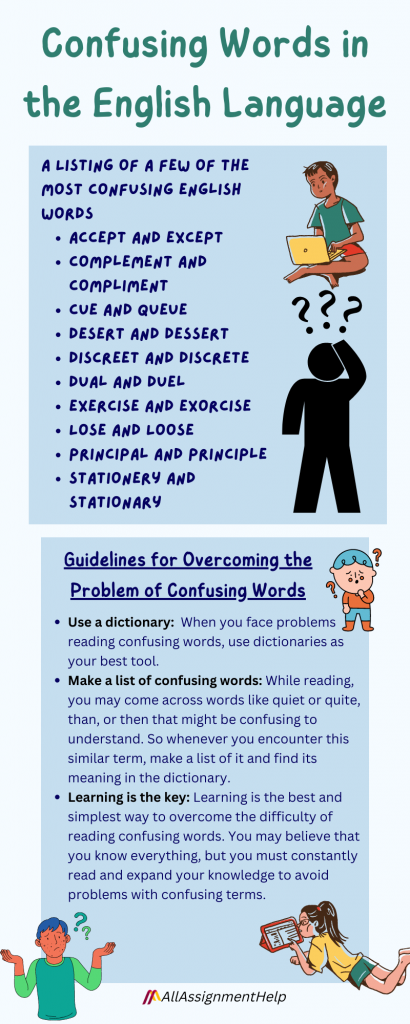
Every one of us might not be good at English vocabulary. If you’re having trouble understanding the words in a book, you can ask your friends for help, look them up on Google, or consult a dictionary. Nothing is embarrassing about learning new words or polishing your vocabulary to the current level. If you have assignment-related issues, you can hire an assignment helper and ask them to do your coursework.
Apart from the vocabulary, there are also a few confusing words that we often encounter while watching movies or reading the newspaper. You might not have paid attention to it, but this small mistake in pronunciation can affect your grades. If you want to learn about confusing words in English, this write-up can help you. In this blog post, we have included a list of confusing words, their meanings, and how to correctly pronounce them. If you are an active learner, you must not miss this chance as it can help in developing your knowledge.
1- Accept and Except
- Accept is the word used to show agreement, or to receive or do something.
- Except gets used for something that is not included. People often mistake it for the word accept.
2- Complement and Compliment
- These are the two most commonly confused words. A small mistake in writing a letter could change the whole meaning of the word.
- The word “complement” gets used to refer to an addition that improves something.
- When it comes to the other word, “compliment,” it is a remark that is used to admire something.
3- Cue and Queue
- Although “cue” is not a popular word, you might make a mistake while writing this word. Thus, it is a must for you to understand these words.
- “Cue” is the word that is used to show a signal for action.
- The word “queue,” which you all must be familiar with, refers to a line of people or vehicles,
4- Desert and Dessert
- It is yet another pair of confusing words that you may find difficult to understand.
- A desert is a dry or barren area. You can also use it to refer to something that has been abandoned.
- Desserts are the sweets dish which we often eat after our meal.
5- Discreet and Discrete
- Discreet is the word that is used to refer to a person who is not careful while speaking and whom we cannot easily trust with confidential information.
- On the other side, discrete means something distinct.
6- Dual and Duel
- “Dual” is the word that is used to refer to something that has two parts. For example, a dual-SIM phone
- You can use a duel to refer to a fight or contest between two people.
Also Read: Simple Yet Significant Things to Remember About Transition Words for Compare and Contrast Essay
7- Exercise and Exorcise
- Exercise is the word that gets used to refer to the physical workout that we often do in the gym.
- Exorcism has a different meaning from exercise, just like the spelling, and it means to take out an evil spirit from a person or place.
8- Lose and Loose
- Lose is a verb that means not being able to find something.
- If you add one more “o” in the word lose, it becomes loose and it is used to refer to something that is not tight.
9- Principal and Principle
- The first-word principal is used to refer to the head of the school that you use in everyday life.
- The other principle refers to a fundamental belief or rule.
10- Stationery and Stationary
- You use the word stationery to refer to the writing materials.
- And stationary can be used to refer to something that is not moving.
So those are the ten most difficult words in English, which we either mispronounce, misunderstand, or misuse. But I do hope that this explanation has made it easier for you to distinguish between these confusing words. You can get affordable online assignment help if you ever have trouble understanding your assignment.
How to Pronounce the Confusing Words Correctly
Apart from the spelling, there are also a few confusing words that we often think of pronouncing correctly but end up mispronouncing. If you pronounce or use the words incorrectly in school, it is okay because you are in the learning stage. You can take my online class and develop your knowledge as a student take my online class and develop your knowledge. But doing the same thing in the corporate world will smear your image in front of your colleagues. Until it’s too late, gear up your vocabulary and learn to pronounce the words correctly. In this blog, we have listed a few of the confusing words and how to pronounce them correctly to assist you. Make sure to read it and apply it to your future communications.
Advice on how to pronounce the difficult words properly
- Match vs Much: In the match, “T” is kept silent, whereas “much” has an extra “h,” and we should say “muhch.”
- Walk vs Work: Like many other words, “l” is silent in “walk,” and it is said as “vawk.”
- Live: “Live” is one of the most confusing and mispronounced words. It is often confused with “alive” or “leave.” It has two pronunciations, one as a verb and the other as an adjective.
- Though vs Through: This is a common, confusing word. Through should be said as “throo” and “though” as “dhoh.” The actual spelling may be difficult to pronounce, but it is the correct way to say it.
- Salmon vs Almond: You might be pronouncing it as “al-mond,” right? But the correct way is to say AR-mund. In both the words salmon and almond, the letter “L” is exempt, and we should say them as Sa-mun and Ar-mun.
- Wednesday: We all have been saying wed-nes-day from our childhood. However, the correct way is to spell it as WENZ-day
- Espresso: You all must love to drink espresso. But do you know that the right way to pronounce this drink is eh-spreh-so? So, from now on, correctly say it.
- Women: Women should be pronounced as “Wi-men.”
- Edamame: The proper way of pronouncing this word is eh-duh-MAH-may, not eda-ma-me.
- Jalapeno: This is something interesting. Jalapeno is pronounced ha-luh-PAY-nyo.
Guidelines for Overcoming the Problem of Confusing Words
You can understand the confusing words and how to use them by using the above explanation. Do you still struggle to read challenging English words? If so, you might find the following information useful. I’ve provided you with a few pointers to assist you in avoiding the difficulty caused by confusing words.
- Use a dictionary: When you face problems reading confusing words, use dictionaries as your best tool. You can also use Google to find the meaning of the confusing words or to differentiate between lookalike words.
- Make a list of confusing words: While reading, you may come across words like quiet or quite, than, or then that might be confusing to understand. So whenever you encounter this similar term, make a list of it and find its meaning in the dictionary. The likelihood of being perplexed decreases as you become more familiar with the terms.
- Learning is the key: Learning is the best and simplest way to overcome the difficulty of reading confusing words. You may believe that you know everything, but you must constantly read and expand your knowledge to avoid problems with confusing terms.
- Read the confusing words carefully: When reading words in English that are difficult to understand, you should exercise extreme caution. Pay attention to every letter, the number of alphabets, how it is pronounced, what it means, and most importantly, how to use it. Despite clearing up your confusion, a single act of negligence can cause more confusion.
- Take help: If you are experiencing problems reading confusing words once in a while, then it is okay. But if you are facing it regularly, then it is better to take help from your friends or consult with a doctor. If not, you can get high-quality assignment writing help and score well in your academics.
About Us
We are an assignment writing service provider that assists students in completing their academic assignments within the deadline. If you have some problem in attempting your assignments, you can opt for our assignment help and can get a well-written assignment. A few of the benefits of taking our assistance are:
- On-time delivery of assignments
- Affordable price
- Highest quality of assignments
- Talented and experienced professionals
- Plagiarism free solutions
- Error-free assignments
Frequently Asked Questions
Question 1: What are confusing words?
Answer 1: Confusing words are those that have similar spelling, pronunciation, or meaning to other words, or that look similar to other words. These English phrases make it difficult for the reader to read or write them.
Question 2: Is it a mental disorder to have difficulty understanding confusing words?
Answer 2: Not at all. Most people have problems diffusing homophones and homographs; this is not a big deal and not a mental disorder. With thorough practice and knowledge, you can comprehend it effectively.
The English language can be very challenging to learn as a second language, but even native speakers may have trouble when it comes to certain word pairs which sound similar, might even have similar meanings, but are spelled differently. Here are ten examples of the most confusing words in English.
Confusing Words in English: Pair Confusion
Accuracy is especially crucial in the translation of documents from one language into another. If the original source contains misused or misspelled words, then (not than) the translated version may contain the same errors.
Often times this confusion comes into play with homonyms – words that either sound or are spelled similarly, but mean different things. However, some mistaken words in English are a result of not understanding grammatical differences.
If found, translators often send such potential errors back to check with the originator of the document, but this costs more money and requires more time in the long run. So getting it right the first time ensures that the correct message is conveyed to the target audience efficiently.
So what are some of the most confusing words in English, including some homonyms? We’ve listed ten below!
10 Of The Most Confusing Words in English
1. Lose and Loose
When your clothes are “loose” they are a comfortable fit, but if you “lose” your clothes in a game then you may be in trouble.
2. Resign and Re-sign
If you write a message to your boss that you want to “re-sign” your contract be careful to write it correctly otherwise he may think that you want to “resign”.
3. Advice and Advise
To give good “advice” , the noun, is often mistaken for the verb to “advise”
4. Affect and Effect
One of the most common errors in the English language, to “affect” one’s mood versus the “effect” of smoking on lung cancer
5. Compliment and Complement
Although a “compliment” may “complement” something someone else has said, they are two quite different words.
6. Disinterested and Uninterested
If you appear “uninterested” you may be bored, but if you are “disinterested” then you don’t care either way about a situation or what is being said.
7. Bear and Bare
It would seem quite important to get this one right since both the animal and to “bear” the brunt of a burden is not anything quite like appearing “bare” in public.
8. Further and Farther
To go “further” in one’s required readings for a class is not the same as to travel “farther” by car than by foot.
9. Hanged and Hung
“Hanged” always refers to the past tense of the hanging of a person, a deadly distinction from a picture frame being hung on a wall.
10. Then and Than
Since you are hungrier “than” your friend, “then” you decide to go and eat.
While mistakes are inevitable, it’s important to make sure you double check your word choice when writing documents, or sending something to be translated. In the latter event, proofreading and making sure your source documents are well-written will ensure a smooth translation!
Learn More About Our Translation Services!
Sources:
- Confusing Word Pairs in English
- Top 30 Commonly Confused Words in English
About Language Connections:
Language Connections is one of the top language service companies in the US. Over the last 30 years, we’ve focused on providing the best business translation services, interpreting services, as well as interpreter training and customized language training programs. In addition to top-tier corporate language training, we offer certified corporate interpreters and professional business translation services in 200+ languages. Our network includes linguists with backgrounds in all major industries. They’re ready to meet your needs, whether they’re for technical translation services, legal translation, government translation services, international development translation services, education translation services, life sciences translation, or something else. Reach out to us today for a free quote on our cost-efficient and timely translation services, interpreters, or other linguistic services.
Language Connections Inc.
2001 Beacon Street, Suite 105,
Boston, MA 02135
Phone: +1-617-731-3510
Email: service@languageconnections.com
Language Connections
Language Connections is a language service provider. We specialize in technical, medical and legal translation, simultaneous and consecutive interpreting, website and software localization, and corporate language programs and interpreter training. We provide certified, professional translation in 100+ languages including Spanish, Portuguese, Arabic, Chinese, Russian, German and French.
Есть в английском некоторые хитрые слова и выражения, которые умудряются путать не только учащиеся, но и сами носители языка. Мы выбрали самые распространенные слова, которые часто путают друг с другом, и хотим помочь вам разобраться с ними.
Amount vs Number
Возможно, вам известно, что оба слова можно перевести как «количество», но в английском языке между ними существует кардинальное различие. Amount мы можем употреблять с uncountables, т. е. неисчисляемыми понятиями, например money, sugar, snow, etc. Number употребляется с countables, то есть с теми вещами, которые можно посчитать, например apples, ideas, people.
Cравните:
I spent a considerable amount of time preparing for the exam. – Я потратил большое количество времени, готовясь к экзамену.
I received a good number of phone calls from people who had seen my ad. – Я получил большое количество телефонных звонков от людей, которые видели мое объявление.
- Не забудьте освежить свои знания об исчисляемых и неисчисляемых существительных с помощью нашей статьи «Countable and Uncountable Nouns».
Fun vs Funny
На самом деле многие мои ученики делают ошибки такого плана: I was at the funny party yesterday. И что же было такого смешного на той вечеринке? Может, там было много клоунов? Ах нет, вы были не на смешной вечеринке, а на очень веселой. Это всё же разные вещи, и в таком случае вы можете сказать что-то вроде: I had so much fun at the party yesterday! Запоминаем:
- Funny – это прилагательное, означает «смешной», «такой, что заставляет вас смеяться», например, a joke (шутка) может быть funny.
- Fun – может быть прилагательным и переводиться как «веселый», «захватывающий»; синоним этого слова – exciting. Taкжe fun может употребляться как существительное – «занятие, которое вам нравится».
Существует множество выражений с fun, угадать значения которых несложно. To have fun – «веселиться», «развлекаться», join the fun – «присоединиться к веселому занятию», harmless fun – «безобидное развлечение».
Doing good vs doing well
How you doin? – знаменитая фраза Джоуи из сериала Friends («Друзья») грамматически не совсем верная. Как известно, это еще одна вариация How are you?, то есть вопрос о том, как у человека дела. Уверены ли вы в том, что ответите правильно на этот вопрос? На всякий случай советуем посмотреть видео.
Exactly. Superman does good, you are doing well. To do good означает «приносить пользу», «творить добро», тогда как to do well – «чувствовать себя хорошо», «нормально». Не перепутайте, иначе кто-то может и вам посоветовать подтянуть грамматику.
Adopt/Adapt/Adept
Несмотря на похожесть, это абсолютно разные слова. To adopt и to adapt – глаголы, аdept – прилагательное (или существительное). Дальше будет еще интереснее.
- To adapt [ə’dæpt] – to gradually change your behaviour and attitudes in order to be successful in a new situation or to change something to make it suitable for a different purpose. Именно это слово похоже на русский эквивалент и переводится как «адаптировать(ся)», «приспосабливать(ся)»:
When I was 10, we moved to another city and I found it quite difficult to adapt to a new school. – Когда мне было 10, мы переехали в другой город и мне было трудно привыкнуть к новой школе.
I decided to adapt this recipe a little as I know that you hate avocado. – Я решил немного изменить этот рецепт, потому что знаю, что ты ненавидишь авокадо.
- To adopt [ə’dɔpt] – to start dealing with something. Перевод – «принимать». Второе значение: to become a legal parent of someone else’s child. Перевод – «усыновлять», «удочерять».
A new law on higher education was adopted yesterday. – Новый закон о высшем образовании был принят вчера.
Mark has known that he is an adopted child since young age. – Марк с детства знал, что его усыновили.
- Adept [ə’dept] – good at something that needs care and skill. Перевод – «знающий», «опытный», «сведущий».
I am afraid most politicians are adept liars. – Боюсь, что большинство политиков – искусные лжецы.
That fish is adept at hiding on the seabed. – Та рыба умеет хорошо прятаться на дне моря.
Prospective vs Perspective
Эти слова также относятся к разным частям речи: prospective – прилагательное, perspective – существительное.
Prospective – possible or likely to happen. Перевод – «будущий», «ожидаемый», «предполагаемый».
As a prospective doctor he should do a lot of studying. – Как будущий врач, он должен много учиться.
Perspective – view on something or method of drawing. Следует переводить как «точка зрения», «мировоззрение» или «перспектива». Здесь следует отметить, что «перспективный» в значении «многообещающий» – это обычно promising or having good prospects.
Working abroad gives you a whole new perspective. – Работа за рубежом дает совершенно новый взгляд на жизнь.
He is a very promising young man. – Он многообещающий молодой человек.
Assure/Ensure/Insure
Эти три глагола похожи по произношению, но имеют разные значения. Давайте сначала потренируем слух и посмотрим, как разницу между тремя глаголами объясняет native speaker.
- To assure [ə’ʃuə] – to tell someone that something will definitely happen or is definitely true so that they are less worried. Это означает, что мы можем перевести assure как «уверять», «заверять кого-либо», «убеждать». Обратите внимание, мы можем употреблять assure that или assure somebody of something.
I assure you that you’ll succeed if you try hard enough. – Я уверяю тебя, у тебя все получится, если ты сильно постараешься.
The shop-assistant assured me of the quality of this product. – Продавец убедил меня в качестве продукта.
- To ensure [ɪn’ʃuə] – to make certain that something will happen properly (also make sure). Подходящий перевод – «обеспечивать», «гарантировать».
Wearing a helmet while cycling ensures your safety. – Шлем при катании на велосипеде обеспечивает вашу безопасность.
It was your responsibility to ensure that everyone at the ceremony has a seat. – Это ты должен был убедиться, чтобы на церемонии у всех было место.
- To insure [ɪn’ʃuə] – to buy insurance so that you will receive money if something bad happens to you, your family, your possessions etc. Следует переводить как «страховать», «застраховывать». С помощью суффикса можно образовать существительное insurance (страховка).
This wouldn’t have happened if you had insured your car. – Этого бы не произошло, если бы ты застраховал машину.
They insured their house for 100000$ – Они застраховали свой дом на сумму в 100000$
Ultimate vs Penultimate
Ultimate – something that happens at the end or something that is of greatest importance. Перевод – «последний», «предельный», «основной», «главный».
They claimed that their ultimate goal was peace in the whole world. – Они утверждали, что их основной целью был мир во всем мире.
Penultimate – not the last but immediately before the last, the last but one. Перевод – «предпоследний».
I’ve almost finished this book. I am reading the penultimate chapter. – Я почти закончила читать эту книгу. Я на предпоследней главе сейчас.
On time vs In time
В данном случае совсем не безразлично, какой предлог употребить. Также нужно быть внимательным, поскольку в русском языке оба слова можно перевести как «вовремя», тем не менее нужно учитывать некоторые нюансы.
On time – at the correct time or the time that was arranged. Перевод – «вовремя», «в точно назначенное время».
Professor Smith is a great teacher but his lectures never start on time. – Профессор Смит – замечательный учитель, но его лекции никогда не начинаются вовремя.
In time – with enough time to spare; before the last moment. Перевод – «вовремя» в значении «заблаговременно» или «своевременно, даже немного заранее».
Some of my friends are visiting tonight so I need to come in time to cook dinner. – Некоторые мои друзья приедут навестить меня, так что мне надо приехать пораньше, чтобы приготовить ужин.
Heroin vs Heroine
Heroin – a powerful illegal drug, то есть «героин».
Requiem for a dream is a film about heroin addicts. – «Реквием по мечте» – это фильм о наркоманах.
Heroine – a woman who is admired for doing something extremely brave, то есть «героиня». Также героиня книги, фильма и т. д.
I always admired Jane Austen’s heroines. – Я всегда восхищался героинями книг Джейн Остин.
Careless vs carefree
Слова внешне очень похожи, но они имеют разное значение.
Careless – not paying enough attention to what you are doing, so that you make mistakes, damage things / opposite to careful. Перевод – «небрежный», «невнимательный».
Tim is so careless with his keys! He is always losing them! – Тим такой невнимательный со своими ключами! Он их постоянно теряет.
Carefree – having no worries or problems. Перевод – «беззаботный», «ничем не обремененный». Не всегда имеет положительную характеристику, иногда словом carefree могут назвать человека, который вообще не берет на себя никакие обязанности и заботы.
What I really like about holidays is being carefree. – Что мне действительно нравится в отпуске, так это отсутствие забот.
Lie vs lay
Глагол lie имеет два значения:
- To lie (lie – lay – lain present participle lying, third person singular lies) – to be in a position in which your body is flat on the floor, on a bed etc, т. е. «лежать».
He was lying on the sofa dreaming about his holiday. – Он лежал на диване, мечтая о своем отпуске.
- To lie (lie – lied – lied, present participle lying, third person singular lies) – to deliberately tell someone something that is not true, т. е. «лгать».
Don’t lie to me! I know when you are lying! – Не ври мне! Я знаю, когда ты врешь!
Кроме того, есть еще слово lay.
To lay (lay – laid – laid present participle laying third person singular lays) – to put someone or something down carefully into a flat position (положить) или to put the cloth, plates, knives, forks etc on a table, ready for a meal (накрывать на стол).
Nancy was cooking dinner, while Sam was laying the table. – Нэнси готовила ужин, пока Сэм накрывал на стол.
He laid his hand on my shoulder and told me not to worry. – Он положил свою руку мне на плечо и сказал мне не беспокоиться.
Вот и закончился наш небольшой хит-парад «проблемных» слов в английском языке. Чтобы быть уверенным, что вы все запомнили, предлагаем выполнить тест.
Тест
Top 10 most confusing pairs of words
Если вы нашли ошибку, пожалуйста, выделите фрагмент текста и нажмите Ctrl+Enter.
If there’s an English word out there that confuses you way more than it should, the logical thing to do is use a different word with a similar meaning, in case there is one. You might look it up in the dictionary or Google its synonyms and learn new vocabulary along the way.
It actually sounds quite simple, right? Well, not entirely…
As an English learner, expanding your vocabulary is important, but so is the ability to speak uninterrupted. It is the difference between speaking accurately and fluently — two very separate language learning goals.
If you want to speak English fluently, you must first master word and speech accuracy as a whole.
This means that you must own your vocabulary and always know the right words to say, without getting confused by certain words. To be fair, English has quite a lot of homophones, which make it harder for learners to use the right vocabulary in context.
However, knowing what those words are, what they mean, and when to use them correctly in speech is what ultimately might save your next conversation, message or essay in English from being a complete disaster.
That being said, here are some of the most confusing words and word pairs in spoken English, along with some pointers on when and how to use them like a champ!
Advice vs. Advise
You’d be shocked at how many English learners mix these two words up. They have almost the same meaning and very similar spellings, but the real difference between them lies in their language role.
«Advice» is a noun and is pronounced with an «s» sound. On the other hand, «advise» is a verb which means «to give advice» and it’s pronounced with a «z» sound.
Examples:
What is the best piece of advice you’ve ever received?
My English teacher always advises me to speak when I don’t want to.
Affect vs. Effect
Similar to «advice» and «advise», these two share one small difference that can help you out in differentiating them. If I had to take a guess, I’d say that learners make the most mistakes with these two words than any other on today’s list.
Nonetheless, the difference is easy to remember! «Affect» is typically used as a verb while «effect» acts as a noun. That’s it!
Examples:
The weather affects my mood a lot.
The current weather has a devastating effect on my mood.
Among vs. Between
Both of these are used to express connections or relationships between certain things. However, «among» indicates that the items being compared are close to or within the same group of things while «between» compares one thing to another or many other things, but clearly separates them.
Examples:
Andy was among the 20 students awarded by the President.
Distance was the only thing standing between her and Andy.
Disinterested vs. Uninterested
Although they’re different in meaning, even native English speakers use these two adjectives interchangeably. They shouldn’t, of course!
To finally set this one in stone for both native speakers and English learners, «uninterested» indicates that someone is bored or not interested in something while a «disinterested» person is someone who is impartial, objective or not taking any sides during an argument, e.g. a judge during trial.
Examples:
He was totally uninterested in the plan I proposed.
The disinterested judge looked at the evidence carefully.
Especially vs. Specially
This is where things get especially interesting! Since there’s only one letter that differentiates these two in pronunciation, English learners have a very hard time finding any differences between them, often thinking it’s the same word.
However, a great difference is still present in the meaning of the two words. «Especially» means «above all» or «particularly» while «specially» means something along the lines of «specifically purposed for/aimed at» someone or something.
Examples:
He loves fast food, especially pizza.
This bed was made specially for him.
Note: Even spell check confuses these two. As soon as I typed up the second example with «specially», I was prompted to use «especially» instead by the Spell Checker. Wrong! So, please learn the differences between these two and always be careful!
Farther vs. Further
This word pair is very confusing in the sense that both of these words have the same meaning and almost the same pronunciation, yet are used in different contexts.
It’s only the «far» and «fur» difference that meets the eye. However, «farther» is used to indicate physical distance while «further» is rather situational and indicates more abstract contexts.
Examples:
The Red Sea was much farther than the map showed.
You could not be further from the truth!
Lay vs. Lie
Last but definitely not least, these two cause headaches for even the best of native speakers! It’s probably due to the differences and/or similarities in their past forms.
So, to put the differences between these two verbs to the rest once and for all, pay close attention and memorize what I’m about to tell you.
The verb «lay» means to place or put something in a certain place. The closest synonym would probably be «put down».
On the other hand, «lie» is a homograph that has two meanings. The first one is the more popular one, which means to not tell the truth. The second one relates to the meaning of «lay» and means to recline.
A cool and easy way to master this difference is to remember that there is an e in both «lie» and «recline».
However, this rule only applies to their present tense forms. In the past tense, it’s a bit trickier. Well, a lot trickier! The past tense of «lay» is «laid» while the past tense of «lie» is «lay». Phew!
Examples:
I always lay in my office chair and just relax during the break.
I laid the phone down on the table.
Let me lie in my bed for a minute.
I lay down around 2 a.m. last night.
Any way you slice it, this doesn’t work unless you truly decide to master these differences and memorize the present and past tense forms of these words correctly!
Conclusion: No More Confusion
In written English, it’s so easy to spell-check your work, status or message in a few simple clicks. Spoken English is very different. You have to own the word to know the word and be ready to use it at all times during a conversation.
Now, I do have to admit something before we wrap it up…
I know you might’ve wondered about the absence of some obvious «The Most Confusing Word» contenders, such as «you’re/your», «who’s/whose», and «they’re/their/there», but there’s a reason for it.
As basic as some of the words in today’s article are, I’ve actually hand-picked all of them for one reason only: the difference between them in spoken English is very noticeable unlike some other words whose differences are only noticeable in writing, e.g. «practice/practise», «principle/principal», etc.
If you wish to say something and there’s two or more words you’re juggling before deciding which one you really need to use in the given context, the answer is simple:
Know the differences and similarities between such words so you’ll never get confused again!
I hope today’s confusing words have become as clear as day for you. Until next time, happy uninterrupted speaking and improved English fluency!

